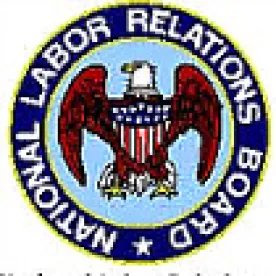The National Labor Relations Board has issued its “Ethics Recusal Report,” which announces several process changes that may add new wrinkles to practice before the Board.
Much of the Report, dated November 19, 2019, is minutiae and insider information regarding existing methods of identifying ethical conflicts.
In 2018, the NLRB faced a high-profile ethical crisis. The Board vacated a significant decision, Hy-Brand Industrial Contractors, Ltd., 366 NLRB No. 93 (2018), in which it overruled Browning-Ferris, 362 NLRB No. 186 (2015), and reinstated the previous, more employer-friendly, test for determining joint employer status. The Board vacated the decision after a finding by the NLRB’s Designated Agency Ethics Official that NLRB member William Emanuel should have been disqualified from participating in the proceeding. Although the circumstances were uncommon, and initially cleared Board conflict check mechanisms, the controversy was an embarrassment for the Board. Chairman John Ring ordered a thorough review, resulting in issuance of the Report.
The Report details little-known Board processes, such as the maintenance of “recusal lists” cataloguing companies whose cases are subject to recusal for each Board member. The NLRB’s Executive Secretary examines these non-published lists before assigning every case. To promote transparency, the Board shortly will issue a protocol requiring public disclosure of these lists. Time will tell whether publication of the lists will encourage increased recusal motions and related litigation.
Recommendations that a member recuse him or herself are not self-enforcing. Individual Board members decide whether to recuse themselves from a particular case. In Ring’s view, this cannot be changed. The NLRB is developing consistent procedures and protocols for handling recusal motions.
The Board also is preparing a rule that all parties must file (and subsequently update) an Organizational Disclosure Statement (ODS) at the outset of a matter. These filings will be used to improve the reliability of the recusal lists. The new rule (based on federal civil litigation rules), at a minimum, will require employers to identify corporate parent entities and all publicly-held corporations owning at least 10 percent of its stock. Unions will be required to identify their parent or subsidiary entities.
While the form of the (ODS) has not been made public, it is probable the Statement must be filed promptly. In representation cases (those generally involving unions attempting to represent an employer’s employees), that likely means filing at the same time the employer’s “Statement of Position” is filed – within seven days after the union has filed its representation petition at the NLRB.
The Report does not address ODS enforcement mechanisms or the penalty for non-compliance. Currently, NLRB procedure requests vague pro forma corporate information to establish its jurisdiction to adjudicate a particular case. Accurately reporting data on interrelated companies may require participation by the employer’s corporate legal department. Concerns include the potential for increased allegations of joint employer status or expanded unfair labor practice exposure to related corporate entities.
In the Report, the Chairman also ordered improved ethics training, including a checklist of uncommon conflict situations developed by the agency’s Designated Agency Ethics Official.
We will revisit these issues and new rules and requirements after they are issued.






 />i
/>i
